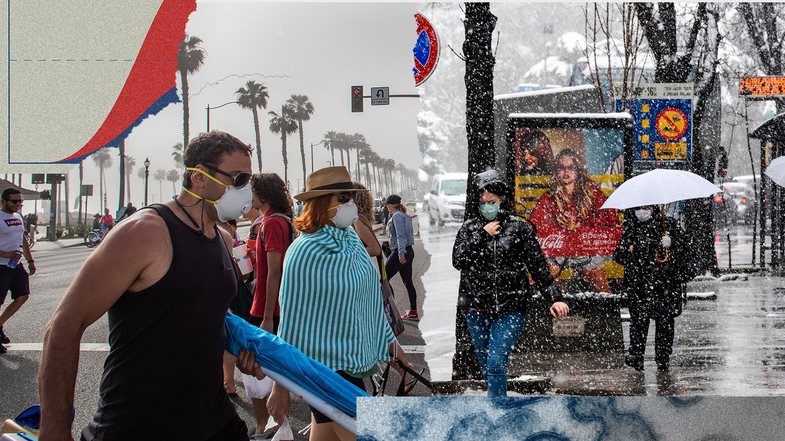
Will Covid-19 follow the same "pattern" as the seasonal flu, which peaks in winter or during the wet season in tropical countries?
To answer this question, scientists are comparing cases of coronavirus between March 2020 and March 2021 in five countries, Canada, Germany, India, Ethiopia and Chile - where they study average daily temperature, humidity, ultraviolet radiation and drying capacity. air.
In temperate climates they found that Covid-19 peaked during the winter months, when temperatures and humidity were low. Meanwhile, in countries with tropical climates the cases peaked during the summer monsoons, when the humidity was high.
The results, published in the journal GeoHealth, reveal that there are two variables - ultraviolet levels and air drying capacity - that are consistently linked to Covid-19 levels in all countries. Bright sun and rapid evaporation were associated with declining cases of coronavirus, while cloudy skies and slow evaporation appear to help spread the virus.
Predicting the Covid-19 season will be important in combating its spread, ensuring that booster doses of vaccines are given before the start of the season when Covid reaches its peak.
However, this does not mean that anti-Covid measures should not be observed simply because it is sunny.
- Pfizer, the first Covid vaccine to receive full FDA approval: An explanation of why it was used before
- How the Delta variant affects children
- Almost certain signs that you have had Covid
- Children born during the pandemic have lower IQs, a study says
- There is a difference when one vaccinated person and another unvaccinated person become infected with Covid





